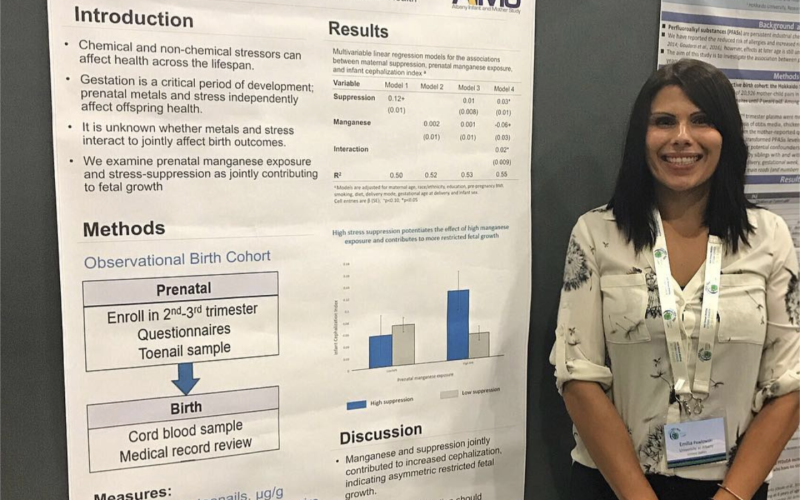What Does It Take to Become a Disease Detective? An Interview with Emilia Pawlowski

ALBANY, N.Y. (Nov. 6, 2023) -- The Epidemic Intelligence Service (EIS) was established by the CDC to serve as a premier applied epidemiology training program. Since 1951, EIS officers have been responsible for conducting field investigations, designing and evaluating disease surveillance systems, and communicating essential public health information to diverse audiences. Members are sometimes referred to as the CDC’s ‘disease detectives.’ It is also a highly competitive fellowship program that is globally recognized for its exceptional emergency response capabilities. We sat down with Emilia Pawlowski, an upstate New Yorker who was recently awarded her PhD in Epidemiology from the UAlbany School of Public Health, to talk with her about her recent acceptance into the EIS program.
What drew you to public health and epidemiology in particular?
“My path to public health was not a direct one. I went to art school at age 17 and studied photography with a focus on social documentary. After graduating with a BFA, I moved to Alaska to be a commercial fisherman and then traveled around the world documenting different communities. I learned that many of the health inequities I witnessed growing up were present everywhere I went. Upon returning to the U.S., I went back to school at a local community college for some basic math and science classes and applied to the MS Epidemiology program at U Albany SPH with the desire to better understand how social and environmental factors affect human health. I could not get enough epidemiology and continued directly into the PhD Epidemiology program from there.”
What did your doctoral research focus on?
“I was fortunate enough to do my doctoral research with Dr. Allison Appleton using data from the Albany Infant and Mother Study (AIMS). We focused on examining psychosocial factors among mothers and epigenetic patterning, measured by epigenetic clock, in their offspring. We also examined associations between epigenetic clock measures and birth and age 2 size.”
What led you to apply to the Epidemic Intelligence Service?
“One of the reasons I wanted to apply is because I recently transitioned into more supervisory work at my position with the New York State Department of Health (NYSDOH) and have become more active in national organizations; for example, I became co-chair of the Injury Surveillance and Epidemiology Subcommittee of the Council of State and Territorial Epidemiologists. As I started to mentor students and supervise full-time staff, I realized that experience and training make me a better leader. The EIS program will expose me to new areas of work and help accelerate the development of skillsets that I can then share with others.
Another reason I decided I wanted more training was because I felt overwhelmed during a NYSDOH COVID deployment during the pandemic. I did not have communicable disease experience prior to joining this response team. However, I was lucky to be on a team with very strong leadership. Watching our team leads put their minds together to accomplish amazing things inspired me to want to gain more experience in emergency response so that I can be better prepared if the need for those skill sets ever arises in the future.”
The EIS is a prestigious fellowship. Do you have any advice to students who might be considering applying?
“My advice to students interested in applying for the EIS fellowship is to first familiarize themselves with what the program is and what the deliverables for fellows are to ensure that the program is aligned with their career goals. I also reached out to several current and past EIS officers to learn more about their experiences with the program and to ask if they had any advice for an EIS fellowship hopeful. Several former officers also emphasized the need to be flexible since both geographic location and topic area for placement are not guaranteed. Knowing that I will receive excellent training wherever I am placed has helped quell any nerves about moving to an unknown location.”
So you don’t know yet where you will be working or what you will be working on yet?
“Yes, that’s right. The program relies on a matching system where fellows have the opportunity to interview for placements at CDC and other federal agencies as well as field placements at state, local, and tribal health agencies. The matching process takes place in the spring, so I will not know what specific project I am working on for a few more months.”
What are your plans for after your 2 years of service? What are your ultimate career goals?
“That’s a good question! Right now, I am focused on identifying opportunities for growth as an epidemiologist and trusting that the path I am on will continue to lead me through a rewarding career in public health.”


